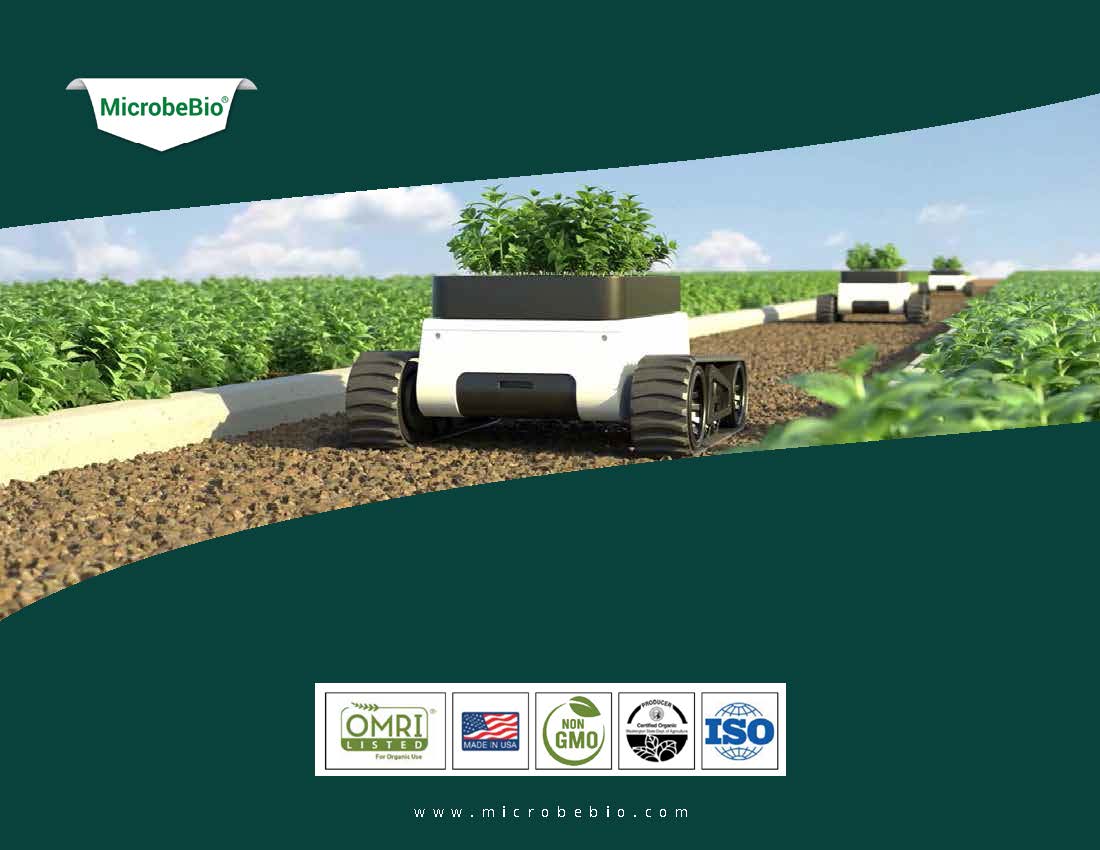Organic Innovations: Enhancing Wheat Production and Weed Control for a Healthier Tomorrow
In the world of sustainable agriculture, the evolution toward organic farming practices is not just a trend but a fundamental shift aimed at ensuring the health of our planet and its inhabitants. This movement champions not only the yield and quality of crops like wheat but also emphasizes the importance of maintaining ecological balance and biodiversity. Among the myriad challenges faced by organic wheat farmers, weed management, especially control of invasive species such as Russian thistle and kochia (often referred to as cosia weeds), stands out as a significant hurdle. These weeds can severely impact crop health, yield, and quality. However, integrating organic methodologies, including the use of Microbebio microbes, mycorrhizae, and 100% organic custom macro and micronutrients, presents a promising solution. Microbebio explores these organic strategies and innovative approaches to weed management, underscoring their potential to revolutionize wheat farming.
The Power of Microbebio Microbial Allies and Nutrient Management
At the heart of organic wheat production lies the symbiotic partnership between wheat plants and beneficial soil organisms, including Microbebio microbes and mycorrhizae. These microscopic allies play a crucial role in enhancing nutrient uptake, improving soil structure, and increasing the plant’s resilience against pests and diseases. When coupled with 100% organic custom macro and micronutrients tailored to the specific needs of the wheat crop, these biological inputs can significantly boost wheat yield, quality, aroma, flavor, and nutritional content, including vitamins and Brix levels.

Weed Management: Blending Tradition with Innovation
Effective weed control in organic wheat production requires a multifaceted approach, combining traditional methods with innovative techniques. Here’s how organic farmers can tackle the challenge:
- Cultural Practices: Crop rotation and cover cropping are time-honored strategies that enhance soil health, prevent weed establishment, and break weed life cycles. Diverse rotations and cover crops can outcompete weeds like Russian thistle and kochia, reducing their impact.
- Mechanical Control: Physical removal methods, such as tilling, hoeing, and mowing, can be effective against weeds. However, these methods require timing and precision to avoid harming the wheat crop.
Enhancing Wheat Health and Productivity
The synergy between Microbebio microbial inoculants, organic nutrient management, and innovative weed control strategies not only addresses the immediate challenges of organic wheat production but also sets the stage for sustainable agricultural practices. By prioritizing soil health, reducing reliance on synthetic inputs, and employing ecological weed management techniques, farmers can produce wheat that is not only high in yield and quality but also contributes to the health of the ecosystem and the people and animals that rely on it.
Towards a Sustainable Future
The journey toward sustainable and organic wheat production is filled with challenges and opportunities. By embracing organic methodologies and innovative approaches to weed management, farmers can safeguard the environment, enhance crop health and productivity, and ensure the well-being of future generations. The key to success lies in the integration of traditional agricultural wisdom with cutting-edge scientific research, fostering a holistic approach to food production that respects and preserves the delicate balance of our planet’s ecosystems.
